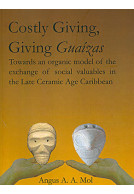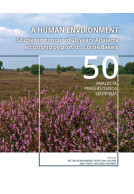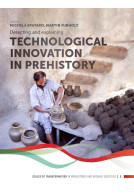Spirituality in Psychotherapy (Paperback)
How do Psychotherapists Understand, Navigate, Experience and Integrate Spirituality in their Professional Encounters with Clients?
Imprint: Sidestone Press
Pages: 300
Illustrations: 1 bw
ISBN: 9789088909320
Published: 28th December 2020
Script Academic
Pages: 300
Illustrations: 1 bw
ISBN: 9789088909320
Published: 28th December 2020
Script Academic
Please note this book may be printed for your order so despatch times may be slightly longer than usual.
You'll be £40.00 closer to your next £10.00 credit when you purchase Spirituality in Psychotherapy. What's this?
+£4.99 UK Delivery or free UK delivery if order is over £40
(click here for international delivery rates)
Need a currency converter? Check XE.com for live rates
(click here for international delivery rates)
Need a currency converter? Check XE.com for live rates
This book explores how Western European psychotherapists, interviewed between 2016 and 2019, understand spirituality and how they address spiritual matters in clinical sessions. By studying a purposive sample of 15 Clinicians from Spain, England, Switzerland, Greece, Norway and Denmark, it was found that these shared similar views about spirituality, understood as dynamic, fluid and independent from religion. The interviewed psychotherapists showed great variation in their psychotherapy trainings, theoretical background and spiritual stances. However, the participants’ rich narratives illustrate that independently from their personal and professional background they all approached spiritual matters from a client centered, humanistic perspective. Spirituality was often addressed heuristically, integrating different approaches in a creative manner through an array of interventions. Differences in the participants’ religious and cultural background did not appear to determine the clinicians’ views and approaches. Recommendations for practice are discussed, stressing the relevance of implementing a non-materialistic scientific paradigm that acknowledges different personal experiences, as a source of spiritual knowledge. The importance of keeping a non-judgmental perspective and the need to acknowledge views and practices of those considering themselves as spiritual but not religious are also highlighted. Different audiences may find this book relevant, for instance psychotherapists and those in charge of psychotherapy training programs wishing to integrate a spiritual perspective in clinical work independent from religious doctrines. Likewise, those interested in historical perspectives about the traditional exclusion of spirituality from clinical work as well as the current re-integration of non- dogmatic, fluid spiritual perspectives may find relevant information. The theoretical discussions and methodological explanations could be of interest for those considering to implement thematic analysis or to pursue qualitative studies from a collaborative and reflexive stance.
Other titles in Sidestone Press...















